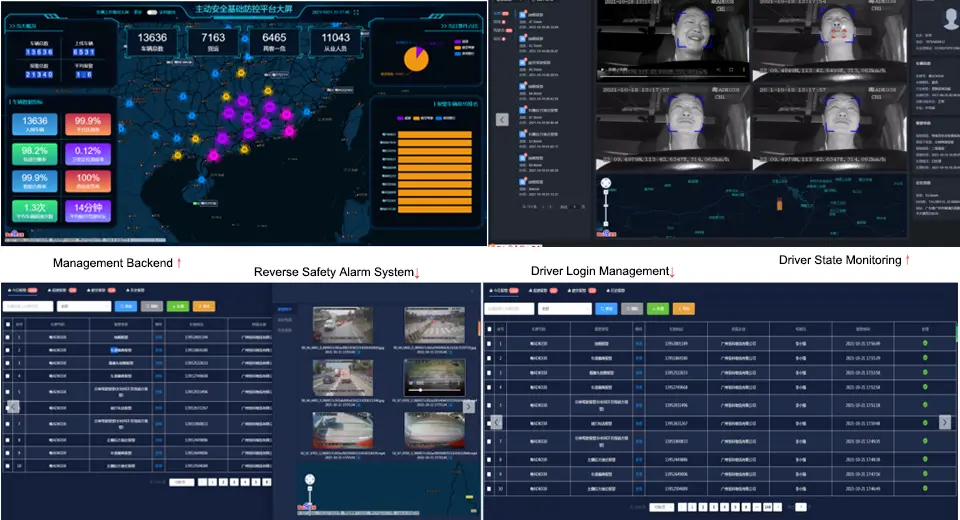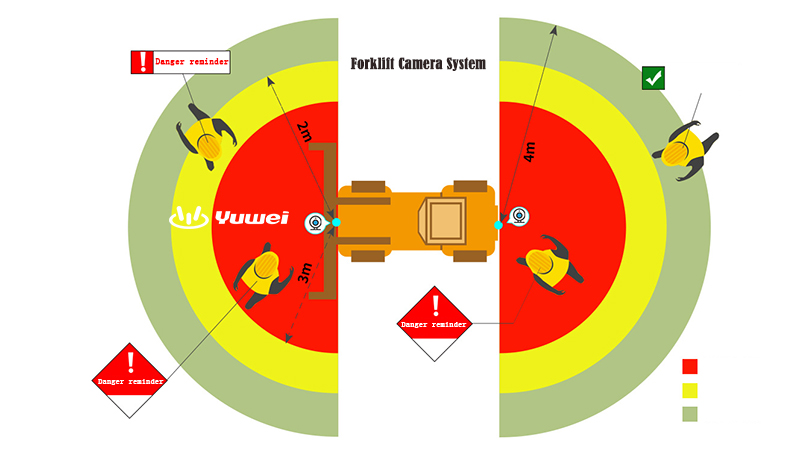The Best Telematics Fleet Management System
Telematics Fleet Management System
Fleet assets are constantly in motion, and with the aid of advanced technology, fleet managers can monitor fleet information in real-time. No longer is there a need to wait for drivers to make phone calls or personally submit vehicle reports. The remote information processing fleet management system has evolved into a powerful tool, enabling companies to enhance efficiency, support driver safety, reduce costs, and elevate customer satisfaction. This article delves into the key features and advantages of cutting-edge remote information processing fleet management systems, providing valuable insights for businesses aiming to optimize their operations.

Simplifying Vehicle Tracking and Monitoring
Efficient Telematics Fleet Management begins with accurate, real-time GPS vehicle tracking. State-of-the-art fleet monitoring systems utilize advanced GPS technology to provide a comprehensive overview of the entire fleet. By monitoring vehicle locations, routes, and speeds, fleet managers can make informed decisions to streamline operations and boost productivity.
Real-time Vehicle Tracking:
A Telematics Fleet Management System offers real-time GPS tracking, allowing the viewing of vehicle locations at any given moment. Comprehensive insights into the movement and status of fleet assets empower management to make quick decisions and effectively respond to unforeseen circumstances. It also eliminates the current reliance on manual communication updates. Access to real-time and historical operational data for all fleet drivers, equipment, and vehicles is easily available through a single dashboard.
Geofencing and Alerts:
Geofencing is a powerful feature that creates virtual boundaries around specific locations or areas. By setting up geofences, fleet managers can receive instant alerts when vehicles enter or leave designated areas. This feature enhances security, helps prevent unauthorized vehicle use, and reduces response times in emergency situations.
Enhancing Driver Safety and Performance
Road safety and driver well-being are crucial aspects of effective fleet management. Monitoring solutions play a pivotal role in promoting safety and reducing accident risks.
Driver Behavior Monitoring:
By integrating advanced ADAS (Advanced Driver Assistance Systems) and DSM (Driver State Monitoring) cameras with remote information processing technology, advanced fleet monitoring tools can monitor various aspects of driver behavior. Understanding instances of speeding, rapid acceleration, and harsh braking helps identify areas that may require driver training or corrective measures. Detailed monitoring reports cultivate safer driving habits, reduce accident risks, and contribute to overall fleet operations.
Maintenance and Diagnostics:
Regular vehicle maintenance is essential for the smooth operation of a fleet. With powerful fleet monitoring, owners and operators can track key indicators such as engine health, mileage, and Diagnostic Trouble Codes (DTC). This facilitates preventive maintenance planning, early identification of potential issues, and minimization of unexpected breakdowns.
Optimizing Operational Efficiency
Complex monitoring and management systems significantly enhance operational processes. With unparalleled operational control and visibility, fleets can gain additional benefits in route optimization, customer experience, fuel management, and cost control.
Route Optimization and Planning:
Managing a fleet often involves planning routes for drivers, and manual processing becomes challenging with a large number of vehicles. Fleet monitoring software employs advanced algorithms to analyze traffic patterns, road conditions, and vehicle capacity, suggesting the most efficient routes for vehicle dispatch.
Efficient route planning maximizes fuel efficiency, reduces vehicle wear and tear, and optimizes delivery times. As operational efficiency improves, optimized routes also enhance customer satisfaction, with reduced chances of driver delays, and customers receiving useful notifications at every step of the journey.
Fuel Management and Cost Control:
Since fuel costs constitute a significant portion of fleet operational expenses, fleet monitoring adds value by monitoring fuel consumption, identifying inefficient driving behavior, and optimizing fuel usage.
By analyzing fuel efficiency data, fleet managers can implement strategies to reduce consumption and control costs. Strategies may include driver training programs, ensuring vehicle maintenance, optimizing routes, collecting vehicle and driver-specific fuel efficiency data, identifying trends in idle time to address issues, benchmark testing for the entire fleet and industry, and tracking fleet fuel consumption.
Innovative Fleet Monitoring Solutions
Powerful fleet monitoring solutions simplify monitoring and management tasks while providing real-time insights to drive improved decision-making.
YUWEI Fleet Management Solution consolidates data-driven insights into driver behavior, asset locations, fuel efficiency, scheduling, and compliance reporting in one place. Enjoy the convenience of real-time dashboard-based reports, offering summarized and detailed reports in a visual format.
Understand the value of importing all operational data into a single fleet monitoring and management platform, and experience firsthand the advantages of accessing remote information processing, location, and safety data from the office or mobile devices.
Email:hello@yuweitek.com

















































